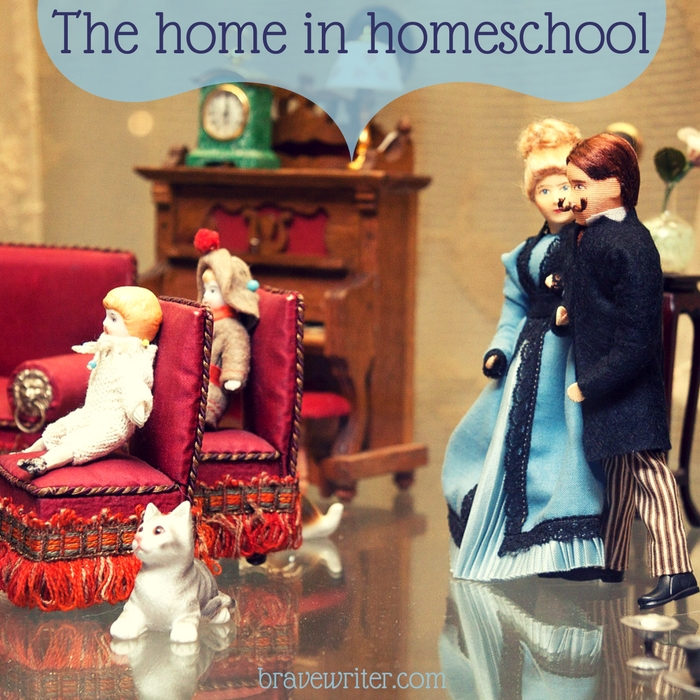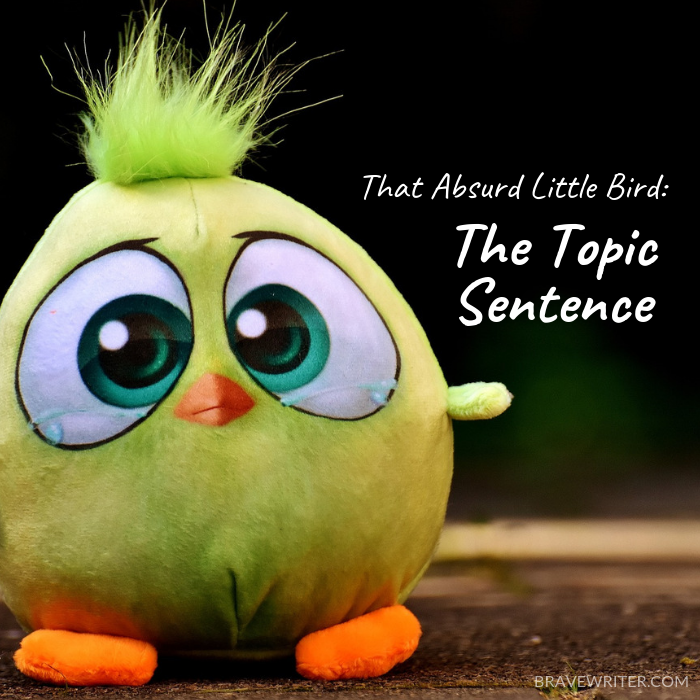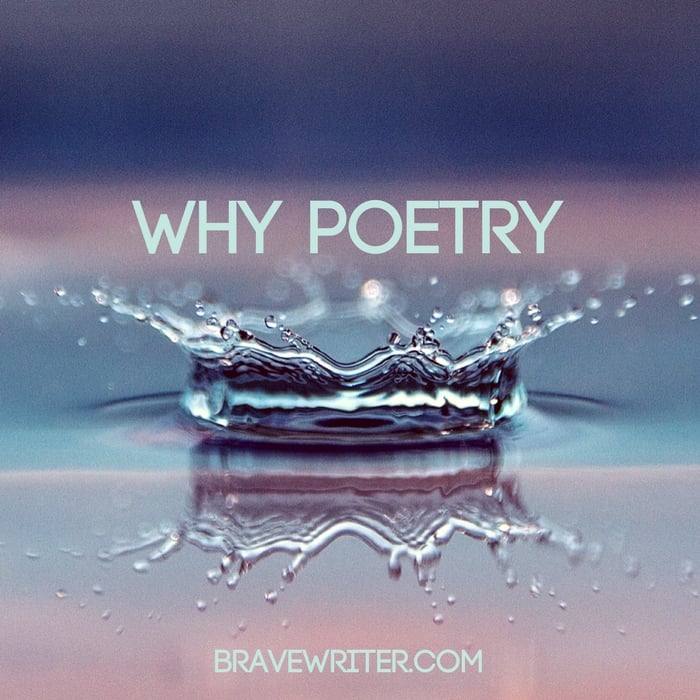
There are two kinds of “being home” that I want to explore in the blog. Today’s post focuses on the physical choice to be “home” more than away. For families with young kids (particularly if you’ve got kids under 12), cultivate a home life, in your house. For families with teens, be choosy. Outside activities are important, but consolidate when you can. If you’re in that awkward phase of life where you have some of each (little kids and big ones), your choices have to be that much more creative and deliberate. I’ve got a special section just for you further down.
The second kind of “being home” has to do with attitude—how do we treat each other when we are home as opposed to away? What does it look like/feel like to be educated in a home?
Choosing to be at home:
The first step in creating a better homeschool environment is to be home. Long stretches of time that go uninterrupted by orthodontists, trips to the tutor, vet appointments for the dog and shopping for food are essential to create a feeling of time and space to learn. One of the best bits of advice I received early on is to not make my doctor or dental appointments in the mornings. Just because I’m “home” doesn’t mean I’m free! If my kids were in a school building, I wouldn’t want to take them out for a check up. I’d wait until the afternoon. Likewise, my time at home is full and therefore I’m not available for appointments before noon, either. Better to schedule all such meetings after lunch. (If you have napping kids, then you have to wait until naps are done or let them nap in the car or stroller.)
Additionally, limit outside activities. We had a rule in our family of five kids that only two kids could be playing on a sports team at any given time. That meant that some of our kids couldn’t do their sport year-round. We had no prodigies so I didn’t have to weigh the merits of possible college scholarships against my decision, so your mileage may vary. But we discovered early on we could only support two weekend games and two sets of practices per week, per season. The same could be said for musical instruments, tutorials, co-ops, dance lessons and so on. When you have lots of kids, this becomes even more important. You do not want your youngest children to spend their early childhoods sipping Juicy Juice boxes in a car seat watching DVDs in the back of the van while they are schlepped along with hockey pads to the next practice!
When possible, hire people who will come to you or live within walking distance. The midwife I chose on my fifth birth traveled to me to do my check-ups. That’s the sole reason I picked her over my previous midwife. When my youngest decided she wanted piano lessons, I sent her across the street. Our piano teacher isn’t my favorite as far as technical skill to teach, but for the early stages, living two minutes from my doorstep outweighed all other concerns. We hired a violin teacher who drove to our house. We also hosted literature discussion groups, writing groups and study sessions so that we could stay home.
Carpool. Do activities that other families do so that you don’t have to do all the driving.
Save some activities until your kids can drive themselves. We didn’t have our kids get jobs outside the home until they could drive themselves. Three of them, however, earned money while at home babysitting and selling cookies in our neighborhood. Neither of these required me to drive anyone anywhere (except when one of them ran out of chocolate chips and forgot to tell me… grrrr!).
Consolidate activities. It’s better to have one long busy day of appointments than to have 30-60 minute trips three or four times per week that interrupt your time at home.
Make one day your inviolable day that you never go anywhere. Once you decide to do this, it will feel nearly impossible to make happen. You’ll find all kinds of reasons you can’t keep this commitment. Of course. Just like dieting or exercise. It’s a discipline. But just as you would clear your schedule to be available weekly for a co-op day, you can do the same in reverse. Make Tuesdays or Fridays (or whatever) the day you never leave the house. You always have the full day at home and are ready for it with good food, a lesson plan, fun TV programming to watch and no pressure to go anywhere. Even if you pull this off three Tuesdays of the month, that’s wonderful! You’ll be amazed at how jealously you guard that day once you commit to it. (Tuesday has traditionally been that day for me since we have co-op on Mondays which is all-day away from home.)
Teens: I’ve shared before that teens need to sense that they are getting out into the big world, evolving into young adults. Home can feel confining, redundant, risk-free. What felt safe and nurturing as a young child becomes confining and tedious past 13. These feelings are normal; they aren’t signs of rebellion or an inability to be happy. I recommend that your teens get involved in something much bigger than they are. One of my Brave Writer students became enamored of low cost, energy efficient housing and built eco-friendly homes in her backyard! Another started a fish breeding farm in the creek neighboring her house. These activities kept these students home, obviously. But home had become a bigger world!
And that’s the point. Home is either the refueling station between community college and aiding at the local elementary school three days a week, or it’s the means to pursuing a dream (writing a novel, inventing a language, crafting a quilt, remodeling the basement).
In our family, two of our teens joined a Shakespeare company that met downtown with professional actors and a wide variety of students once a week on the weekends with performances at the end of the year. I know teens who’ve built computers from scratch, are on high level sports teams, acted in plays, started parttime high school or junior college, worked for the first time, gone to art institutes, joined community or high school music programs, written for publication, and started businesses. Doing written narrations by themselves at the kitchen table is not enough for a teen’s education. And supervising the small children in the family is not a teen’s daily responsibility. We had the babies; they didn’t.
Teens need driver’s licenses and money. They need peers and challenges. And they need a home. That home is their anchor. They tack between feeling bold and anxious, mature and needing a parent. Home is the place where they can curl up and recharge.
Each teen is different so remember that some need more down time than others. You can monitor this by evaluating how well they manage emotionally. Paring down the outside activities can be one way to help them reconnect to themselves. But be cautious. Teens have a remarkable capacity to juggle many demands and some need that stimulation to become the competent people they want to be.
So what do you do if you have teens needing adventure and little kids needing a stable home routine? This is the trickiest period, but it’s important to be intentional. There are a couple ways to help your teens get out without sacrificing the little kids in the process (and there are ways to keep a nice, vibrant home life without forcing teens to sit home all day). Try some of these ideas and see how they work for you.
Commit to one big “out of the house”
project for your teen.
Support one big project (Shakespeare, biology class, refurbishing a car, All Star soccer). Pay for it, help get the teen to that project, show up for performances or whatever is required. Then, above that one big project, put the responsibility on your teen to make the other stuff happen. That means if it requires money, they earn it. If it requires rides, they coordinate (create the car-pooling, or drive themselves, or work it out with you so that it doesn’t interfere with your routine with the younger kids). They take responsibility for making the stuff they want… happen. That’s part of adventure, responsibility and risk. They choose to make their lives more interesting, richer.
Find one big project to work on at home.
This can be as sophisticated as constructing a language (I have one kid who did this) or as simple as becoming really good at World of Warcraft. It’s great if your teens have a goal that can be pursued at home: watching all the top AFI films, writing a novel, studying art history, planting a vegetable garden, rebuilding the engine of a car, building a website, learning photography. School work (the stuff that goes on the transcript) is necessary, but if it’s all that your teen does at home, home will quickly become a chore rather than a place your teen wants to be.
Protect your mornings.
Let your teens know that you need the mornings with your younger kids. That means you will resist being a ride between 8:00 and 11:00 every day. (If a teen needs a ride home from school or something routine like that and it doesn’t take you more than 15 minutes round trip to make it happen, then that’s not unreasonable… but be wary of interruptions that take a half hour or more.)
Triangle in other teen families.
It’s sure nice if your daughter and her best friend are both in the play together. Car-pooling! It’s great if a group of kids takes biology together so they can study, ride-share and have friends all at the same time.
Pass home responsibilities down
to the younger kids;
free your teens to do less at home.
Remember when your oldest was 10? You expected a lot (cleaning a bathroom, laundry, setting and clearing the table). But now that your youngest is 10, you still expect the 16 year old to do those chores while the 10 year old seems “too young.” Nonsense. Get your younger kids to do the chores and free the teen to study, have a social life, work a job, and pursue extra-curricular activities. This helps your teen want to be home, too.
Keep a computer in the family room.
This enables you to be with your youngers while your teens have a reason to leave their bedrooms.
























